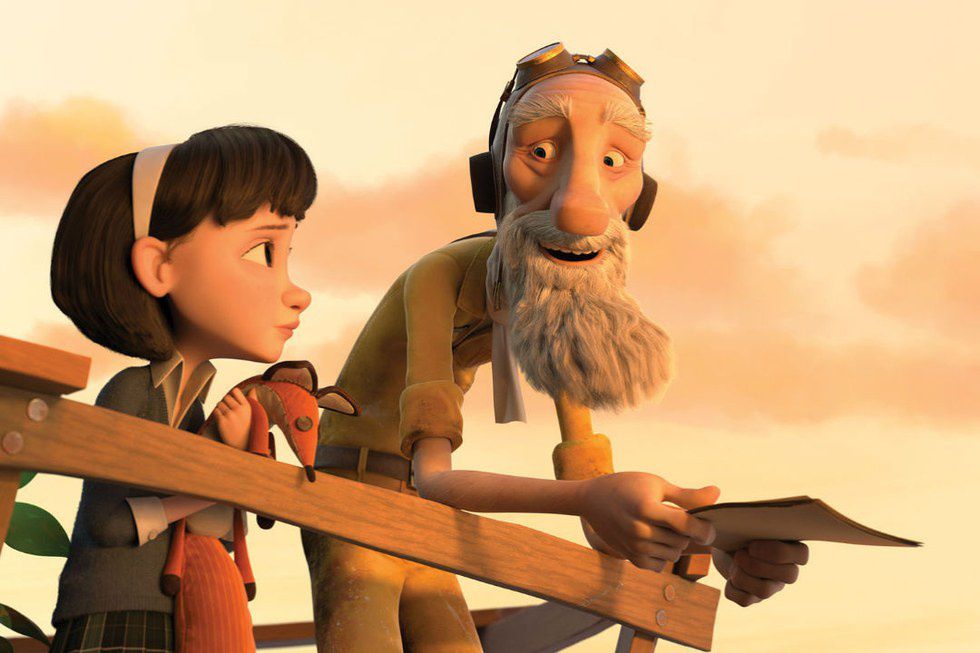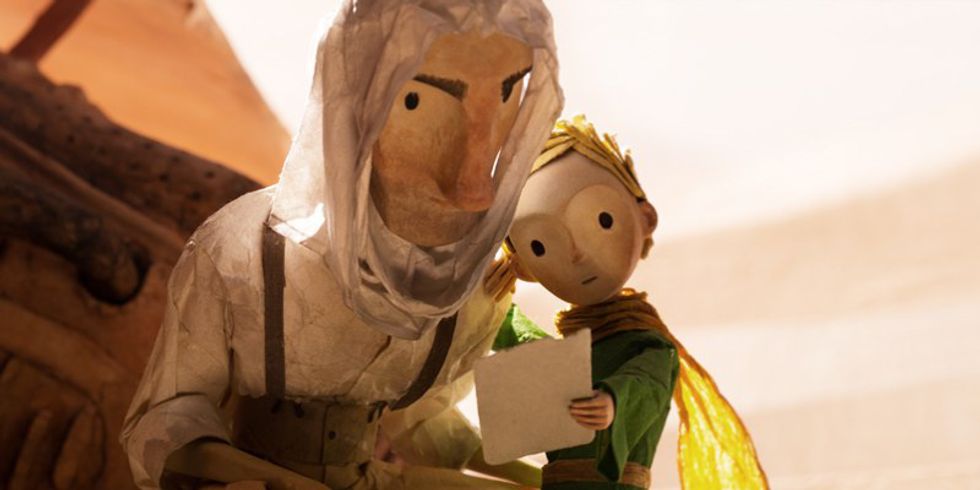The conversation on what it means to be a child, grow up and become an adult revolves on knowledge: what do children know that adults forget? What do adults know that children need to learn in order to become successful adults? The Little Prince is a film which aims to answer those questions by suggesting (quite strongly) that a child who does not know how to imagine and create, love and learn cannot be a successful adult. By combining Antoine de Saint-Exupéry’s deft watercolor and dreamy, but profound tale of a little prince (on a planet no larger than himself) with a bold, bright and sometimes harsh CG modern tale of a little girl (seeking the best elementary school), Mark Osborne creates a fresh, whimsical case for a childlike, creative spirit.
"Growing up isn't the problem: forgetting is!"
Perhaps the film's main thesis could be summed up in that one line from the aviator, an grandfatherly adventurer who met the prince in the desert. For those of you who are unfamiliar with the story. The Little Prince follows a little boy on a planet no larger than himself. He muses profoundly as only a child can; falls in love with a rose and meets a variety of strange grown ups. These grown ups are obsessed with being intelligent, important and owning the stars. The Prince's story is told in a kind of paper-maché stop-motion animation which gives Saint-Exupéry’s original tale the rhetorical lightness it breathes with in the book. Osborner's clever move is to put the narrative tale of a little girl alongside it. The girl, voiced by Mackenzie Foy, is raised by her ambitious and slightly frenetic single mother (Rachel McAdams). The two form a duo bent on moving up the social ladder with strict schedules, by the second routines and a life full of, literally, very little color or beauty. While the juxtaposition is forced a bit at times, the intent of the message stays. The girl, drawn by curiosity and a paper airplane befriends the aviator voiced by Jeff Bridges. Bridge's voice serves the perfect 'grand parent-storytime' tone for both the paper-maché and CG storylines.
The little Girl and the Aviator share one of those beautiful montáge friendships which allows the delights of summer, creative play and time in nature which is so missing from American childhood summers these days.These scenes are often interspersed with the story of the Little Prince staying true to the original narrative even paralleling the Prince's Fox friend with the most adorable stuffed animal Fox toy since Bonnie's toys in Toy Story 3.
One wonders if movies will soon begin to serve as flashbacks to older times when the rhythms of our school and work worlds were different. I won't spoil the catch in the story for you. But, just know the idea of growing up and forgetting is taken to an imaginatively horrifying extreme. Even though that part leaves the Prince's original narrative and the delicate paper-máche behind for the Little Girl's storyline, the ending none the less makes a simple-hearted case for retaining imagination and wonder in the growing up process.
You don't see to many movies asking about what it means to grow up and be an adult. If anything, movies themselves reinforce the kind of entertainment one is expected to consume and enjoy as a child or adult. The two realms never mix until a child is expected to be an adult. The Little Prince is one of those rare films that people of all ages can enjoy. This film helps us remember the beautiful, creative desires we have as human beings: we are meant to tell stories, live lives and love others -- even if 'others' are roses.






















